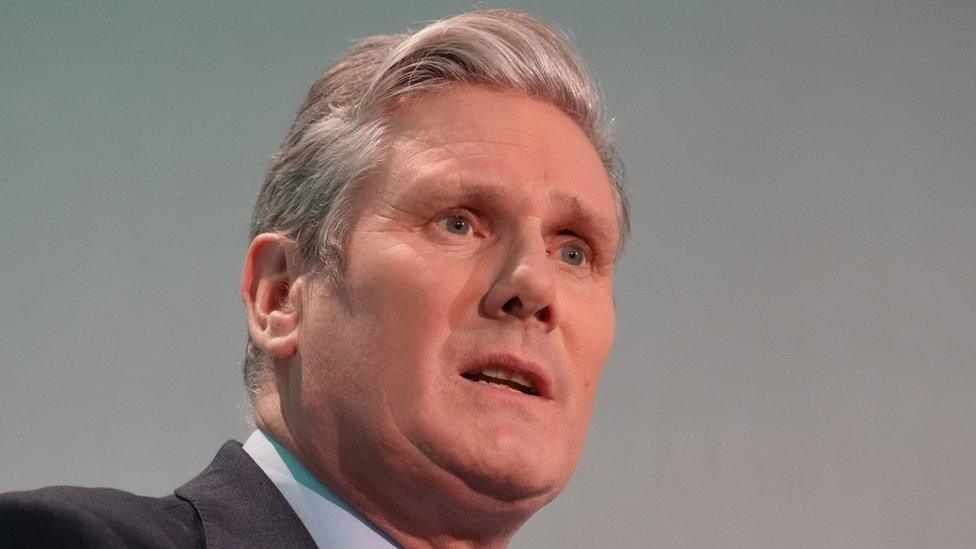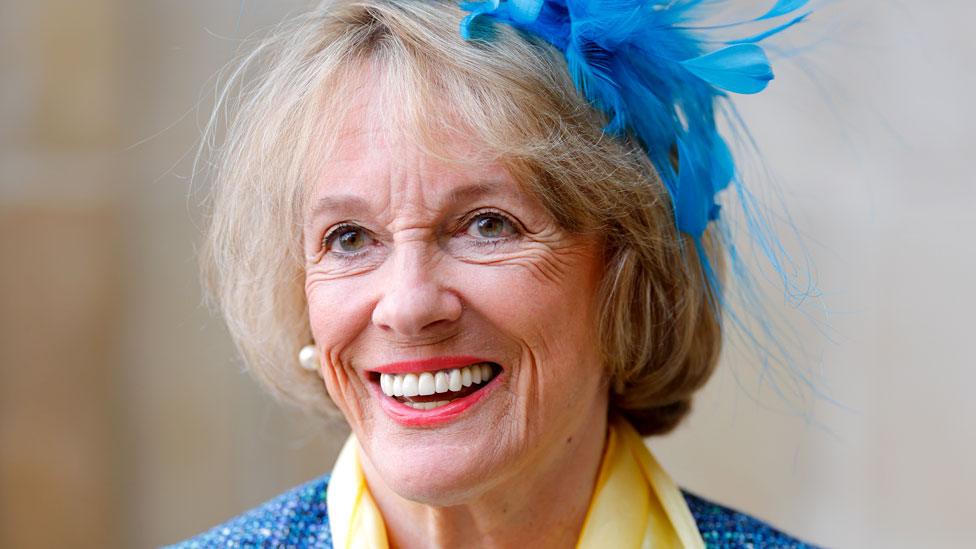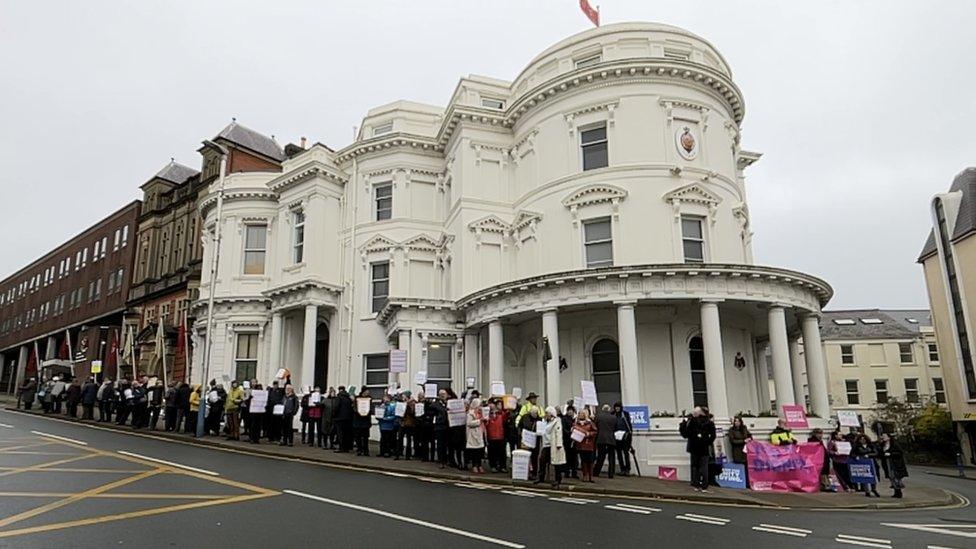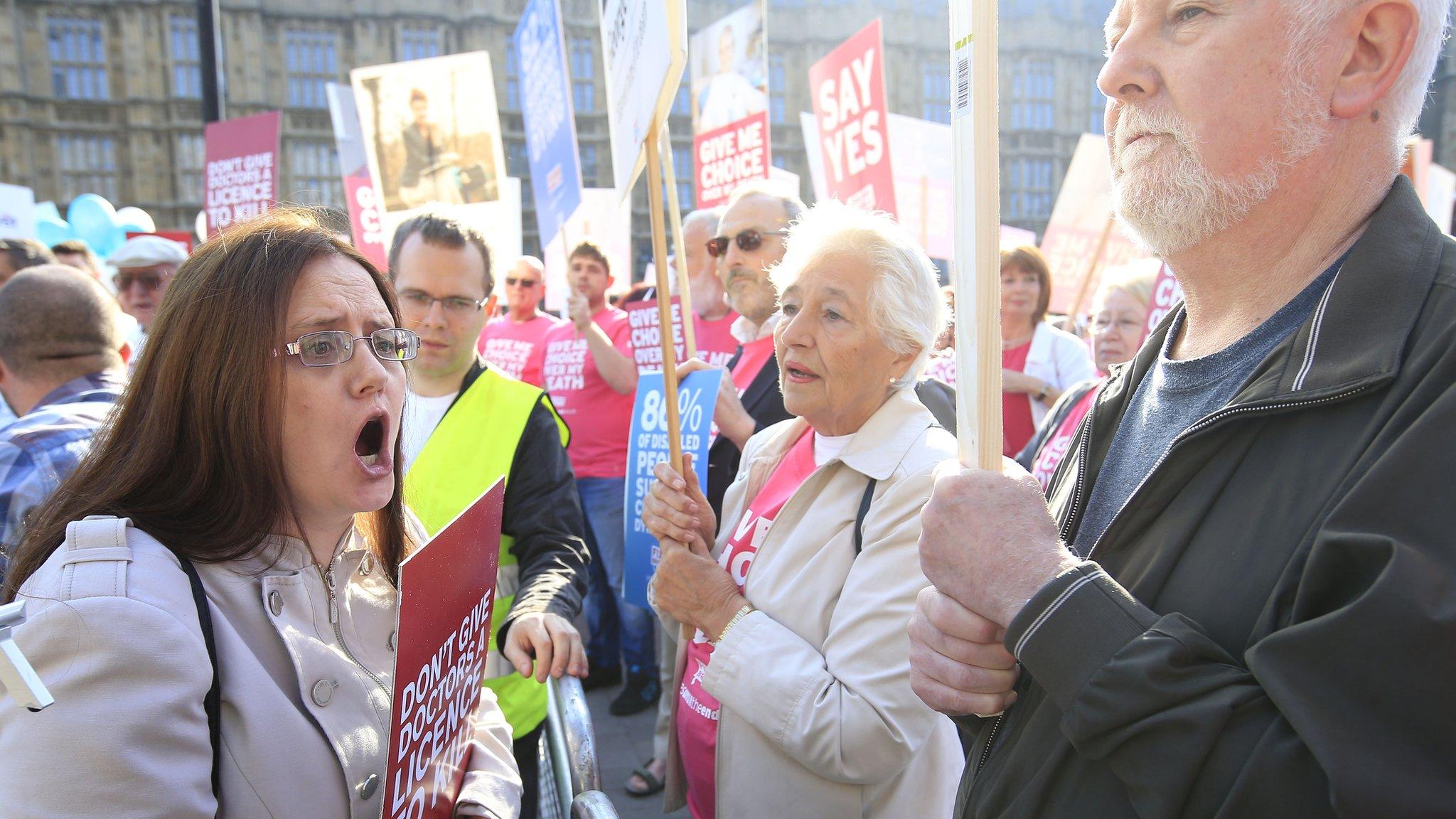Sir Keir Starmer supports assisted dying law change
- Published
- comments

Labour Leader Sir Keir Starmer has said there are "grounds for changing the law" on assisted dying.
Sir Keir said MPs should be given a chance to vote with their conscience on the matter.
A bill to legalise assisted dying in the UK was defeated in 2015, but was backed by Sir Keir and several Tory cabinet members.
The issue is under discussion after Esther Rantzen announced she had joined the Dignitas assisted dying clinic.
The 83-year-old broadcaster told the BBC she is currently undergoing a "miracle" treatment for stage four lung cancer.
If it does not work, "I might buzz off to Zurich", where assisted dying is legal, she told Radio 4's The Today Podcast.
Dame Esther, who is best known for presenting the BBC Show That's Life! for 21 years and launching the charity ChildLine, said she believed people should be given the choice about "how you want to go and when you want to go".
The broadcaster said if she did decide to have an assisted death at Dignitas that would put "my family and friends in a difficult position because they would want to go with me, and that means that the police might prosecute them".
Assisted suicide is banned in England, Wales and Northern Ireland, with a maximum prison sentence of 14 years. While there is no specific offence of assisted suicide in Scotland, euthanasia is illegal and can be prosecuted as murder or culpable homicide.
As a backbench MP, Sir Keir backed a 2015 bill which would have legalised terminally ill people ending their own life. The bill was voted down by 330 to 118.
Speaking to broadcasters on a visit to Estonia, Sir Keir stressed politicians "have to be careful" when dealing with such a sensitive topic.
Were the issue to be considered by MPs again, it should be a free vote, as he "respected" the "strong views" on either side, he said.
Sir Keir said: "I personally do think there are grounds for changing the law.
"Traditionally this has always been dealt with through a Private Members' Bill and a free vote, and that seems appropriate to me."
Free votes in the House of Commons party lines are not enforced, allowing MPs to vote by personal choice.
'Fundamental shift'
MPs voted down the 2015 bill on allowing terminally ill people to end their own life by 330 to 118.
In the 2015 vote - 11 MPs who are now members of Sir Keir's shadow cabinet supported the bill and eight, including deputy Labour leader Angela Rayner, voted the down the law.
Three of Rishi Sunak's cabinet voted in favour of assisted dying eight years ago - including Work and Pensions Secretary Mel Stride.
There are now questions around when another vote could take place. The Liberal Democrats say they would welcome a debate and free vote in Parliament.
Ms Kearns, who chairs the foreign affairs select committee, said she thought there had been "a fundamental shift in the country, but also in parliament" since 2015.
"The amount of my colleagues who say 'I've reflected, I've changed my views'… I really do think that the national conversation has changed," she told the BBC, adding: "In my opinion, assisted dying is not about ending life, it's about shortening death."
Health Secretary Victoria Atkins would not be drawn on her feelings about the highly sensitive issue.
"It has to be a matter for parliament and individual MPs," she said, pointing out that the last vote was on a Private Members' Bill.
Legislation is currently being proposed the Scottish Parliament by Liberal Democrat MSP Liam McArthur. The Assisted Dying for Terminally Ill Adults (Scotland) Bill due to come before Holyrood next year.
The Health and Social Care Committee is due to publish its report into assisted dying and assisted suicide in England and Wales, having launched an inquiry in December 2022 to examine different perspectives in the debate.
Related topics
- Published19 December 2023

- Published31 October 2023

- Published11 September 2015
